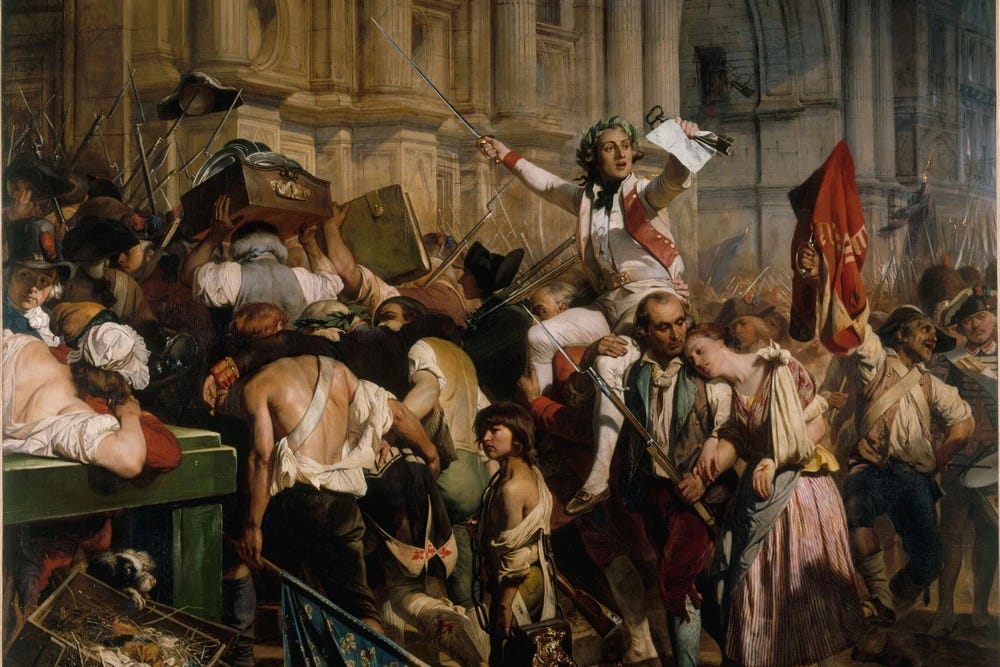If you logged onto Twitter today, you may have run into an exciting new policy: Links to Substack newsletters, including this one, have been effectively banned. At first, you couldn’t even post a Substack URL. Now you can’t interact with — retweet, like, bookmark, or reply to — a tweet that includes a newsletter link or one posted by Substack corporate. (When I do, I get a message that says: “Some actions on this Tweet have been disabled by Twitter.”)
The inspiration for this act of blatant censorship is assumed to be Substack’s plan to launch an app called Notes, whose short, interactive posts and bare-bones design make it look a lot like a competitor to Twitter.1 That would track with Elon Musk’s attempts late last year to block links to competitors including Mastodon, Instagram, and Facebook. “Twitter should be easy to use, but no more relentless free advertising of competitors. No traditional publisher allows this and neither will Twitter,” he tweeted at that time, before ultimately caving to pressure to undo the policy.
This is all both funny and annoying. The annoying part is that, for better or worse, Twitter has been a major source of new readers and subscribers to this newsletter for the last four years—and though its importance is declining as fast as the site’s functionality, no other social platform yet comes close. (This is presumably part of why Hamish, Chris, and Jairaj are trying to start their own short-form site.) In the meantime, I guess I can only rely on email forwards, Substack recommendations, and friends telling friends to subscribe.2
But on a more philosophical level, it is extremely revealing. Musk, don’t forget, bought Twitter because of his identity as a purported “free speech absolutist.” In March 2022, he tweeted a poll asking: “Free speech is essential to a functioning democracy. Do you believe Twitter rigorously adheres to this principle?” He followed up, perhaps unintentionally aping Vladimir Lenin, asking, “What should be done?” On buying the company, he assembled a goon squad of former journalists and PR professionals headed by Matt Taibbi and Bari Weiss to trawl Twitter’s digital archives and find evidence of a public-private censorship regime. Just a few hours ago, Fox News posted a digital short under the headline: “Elon Musk praised by CEO of once-banned company for restoring free speech at Twitter.”
This all seems like a contradiction — a free-speech absolutist censoring a competitor!!?! But of course, it’s not a contradiction at all. That’s because there is not, and has never been, such a thing as a free-speech absolutist, at least one with any sort of power to even theoretically limit other people’s speech. Everyone who is being honest with themselves can name at least one kind of speech they think should be throttled: whether incitement to genocide, injurious slander, or threats against children (or at least against one’s own). And that goes triple for a blatantly censorious, union-busting oligarch like Elon Musk, whose highlights at Twitter have included firing employees who criticized him, banning journalists who criticize him, censoring critics of India’s right-wing prime minister, and ordering tweaks to the algorithm to ensure his personal tweets get priority over everyone else’s.
The questions, then, are what speech is out of bounds, what speech gets prioritized, and why. Those are vexing questions. They are in fact ones that every liberal democracy has strugged with since Thomas Jefferson helped the Marquis de Lafayette draft the French Declaration of the Rights of Man and of the Citizen, the first governing document enshrining a right to free speech in the Western world, in 1789.3 And those are the exact kind of debates that certain kinds of people want to distract the public from with the disingenuous insistence on “free speech absolutism.”
There is, sadly, a long history of people trying to use the mantle of free speech to justify all kinds of awful things,





